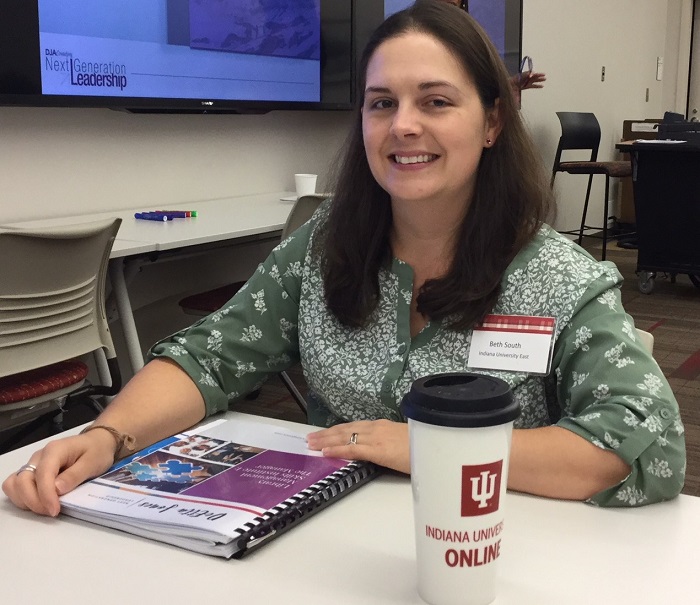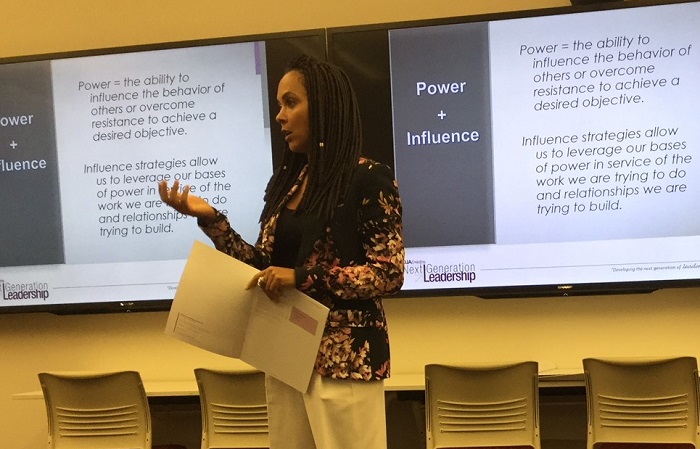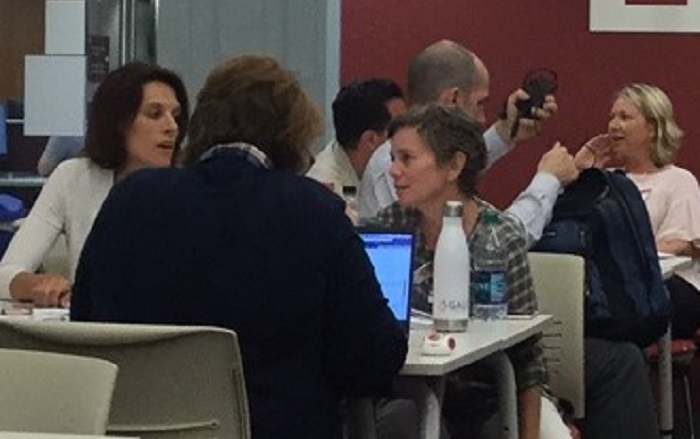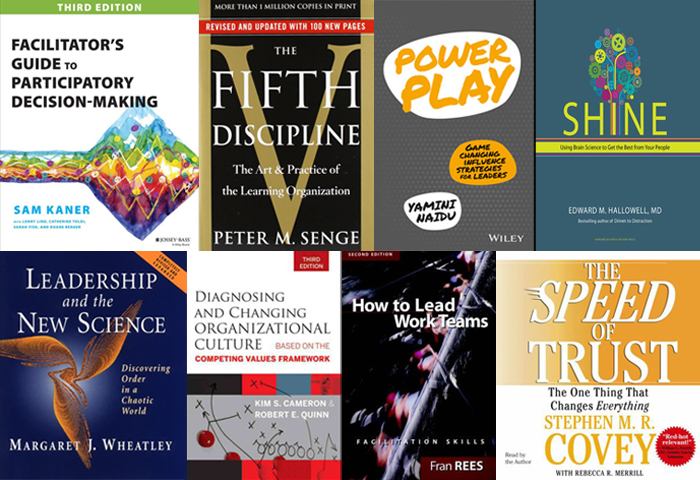Beth South is Coordinator of Campus Library User Services and Archivist at Indiana University East.
This past week, I had the opportunity to attend the Library Management Skills Institute in Bloomington, IN, sponsored by the Association of Research Libraries and Indiana University Bloomington Libraries. It was an intensive and engaging three-day workshop, led by consultant DeEtta Jones. Participants included librarians in varied positions at different libraries and at various stages in our careers, but we all shared similar concerns and issues. Whether we have been managers for years, in a new position, or have yet to enter a management position, we were all looking for ways to prepare ourselves for these leadership roles, or to perform better in these roles.
Although some people adhere to the idea that there are born leaders, for the majority of us it takes practice. Lots of practice, guidance, and support. We also think of leaders as having a certain skill set, such as being strong, articulate, decisive, confident, outgoing, and engaging. What I have learned is that yes, these are great skills to have in a leader, but these are not the only skills that are important and not every good leader has these skills. Additional skills needed to lead or manage well include empowering employees, being a good listener, building relationships, supporting employees and peers, asking questions and inviting conversations, following through from commitments to action, setting an example, keeping an open mind, staying positive, and focusing on going forward. These skills do require practice and personal reflection. It is also important to keep in mind that even the best managers have bad days and, again, for a lot of us in manager roles, this doesn’t always come naturally, so we need to intentionally work at doing a lot of these behaviors.
Even though this workshop was focused on managers, I realized that really all of these ideas can be applied to anyone in any position. With the new insight and tools the workshop provided, I came away thinking how I can better support my student staff, as well as colleagues and supervisor. This includes asking more questions, allowing for more open discussion in meetings, staying positive, and utilizing their strengths. I encourage students or young professionals just starting out to really explore leadership practices and influencing strategies because while they may not yet be leaders or in a typical position of power, they aren’t powerless. Below is a list of recommended reading, ebooks and audio books, that the IU East Campus Library has available via IUCat. So, if the idea of being in any sort of leadership role or just starting a new job gives you any sort of anxiety, then check out one these books.
- The Speed of Trust by Stephen Covey
https://iucat.iu.edu/iue/16846799 – downloadable audio book
For business leaders and public figures in any arena, The Speed of Trust offers an unprecedented and eminently practical look at exactly how trust functions in our every transaction and relationship—from the most personal to the broadest, most indirect interaction—and how to establish trust immediately so that you and your organization can forego the time–killing, bureaucratic check–and–balance processes so often deployed in lieu of actual trust.
- Shine: Using Brain Science to Get the Best from Your People by Edward Hallowell
https://iucat.iu.edu/iue/16846895
This audio edition combines brain science with performance research to offer a proven process to help you enable your people to shine their brightest and perform at their best, day in and day out. Read by the author.
- Facilitator’s guide to participatory decision-making by Sam Kaner
https://iucat.iu.edu/iue/15115696 – downloadable audio book
The third edition of this ground-breaking book continues to advance its mission to support groups to do their best thinking. It demonstrates that meetings can be much more than merely an occasion for solving a problem or creating a plan. Every well-facilitated meeting is also an opportunity to stretch and develop the perspectives of the individual members, thereby building the strength and capacity of the group as a whole.
- The Fifth Discipline the Art & Practice of The Learning Organization by Peter Senge
https://iucat.iu.edu/iue/16847198 – downloadable audio book
In The Fifth Discipline, Senge describes how companies can rid themselves of the learning “disabilities” that threaten their productivity and success by adopting the strategies of learning organizations—ones in which new and expansive patterns of thinking are nurtured, collective aspiration is set free, and people are continually learning how to create results they truly desire.
- Leadership and the New Science: Discovering Order in a Chaotic World by Margaret Wheatley
https://iucat.iu.edu/iue/16839459
Leadership and the New Science is the bestselling, most acclaimed, and most influential guide to applying the new science to organizations and management. In it, Wheatley describes how the new science radically alters our understanding of the world, and how it can teach us to live and work well together in these chaotic times. It will teach you how to move with greater certainty and easier grace into the new forms of organizations and communities that are taking shape.
- Diagnosing and changing organizational culture by Kim Cameron
https://iucat.iu.edu/iue/16842786
Offering lists of suggestions for improving management skills and competencies, this book provides a framework, a sense-making tool, a set of systematic steps, and a methodology for helping managers and their organizations carefully analyze and alter their fundamental culture.
- How to lead work teams facilitation skills by Fran Rees
https://iucat.iu.edu/iue/16837481
Step-by-step, author Fran Rees shows you how to develop the powerful facilitation skills that will help make you an outstanding team leader, coach, motivator, and facilitator. This hands-on book is filled with proven tips, tools, and techniques that can be learned today and put into action tomorrow.
- DISC for Leaders by Tony Alessandra
https://iucat.iu.edu/iue/16842579
Would you like to increase—substantially increase —your compatibility with other people? Can you imagine the ways this might benefit you in your career, your day-to-day dealings with people, and in your closest personal relationships? DISC stands for four distinct and predictable behavior patterns: Dominance, Influence, Steadiness, and Conscientiousness. There is no “best” behavioral pattern and everyone identifies with some characteristics from each behavior style.
- Power Play : Game Changing Influence Strategies For Leaders by Yamini Naidu
https://iucat.iu.edu/iue/16846532
Power Play is the powerful and practical 21st century guide to mega-impact and influence, providing business leaders with explosive influence strategies to move people into action and results. Influence, like gravity, pulls success into your orbit and gives you the power to make real changes in your relationships, your organization and the world.





